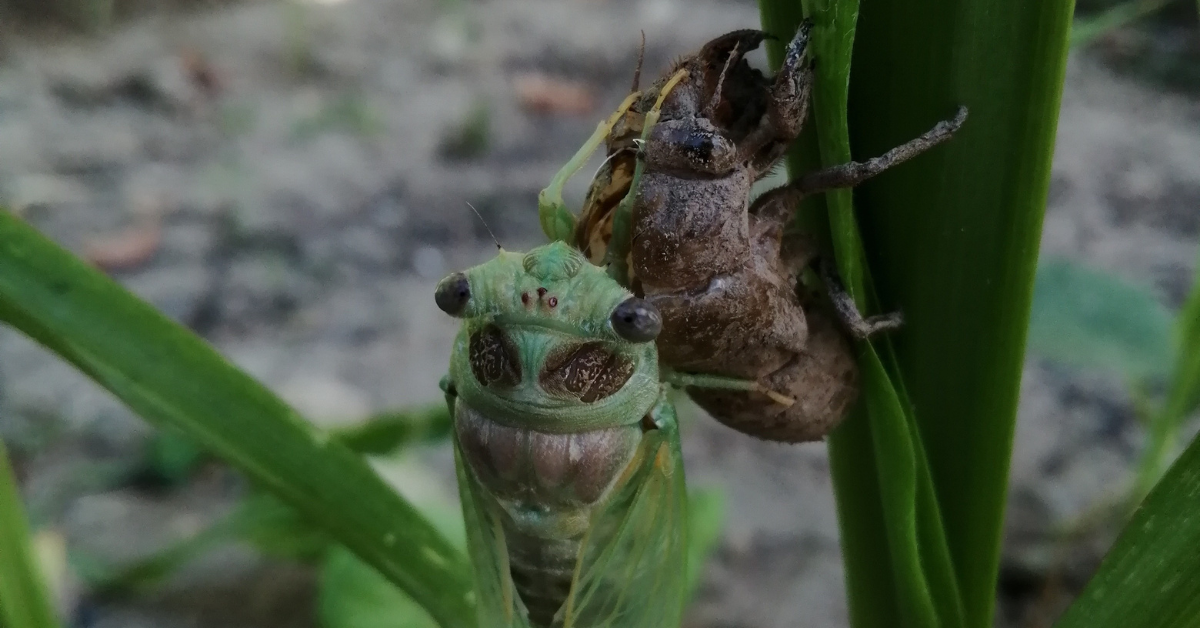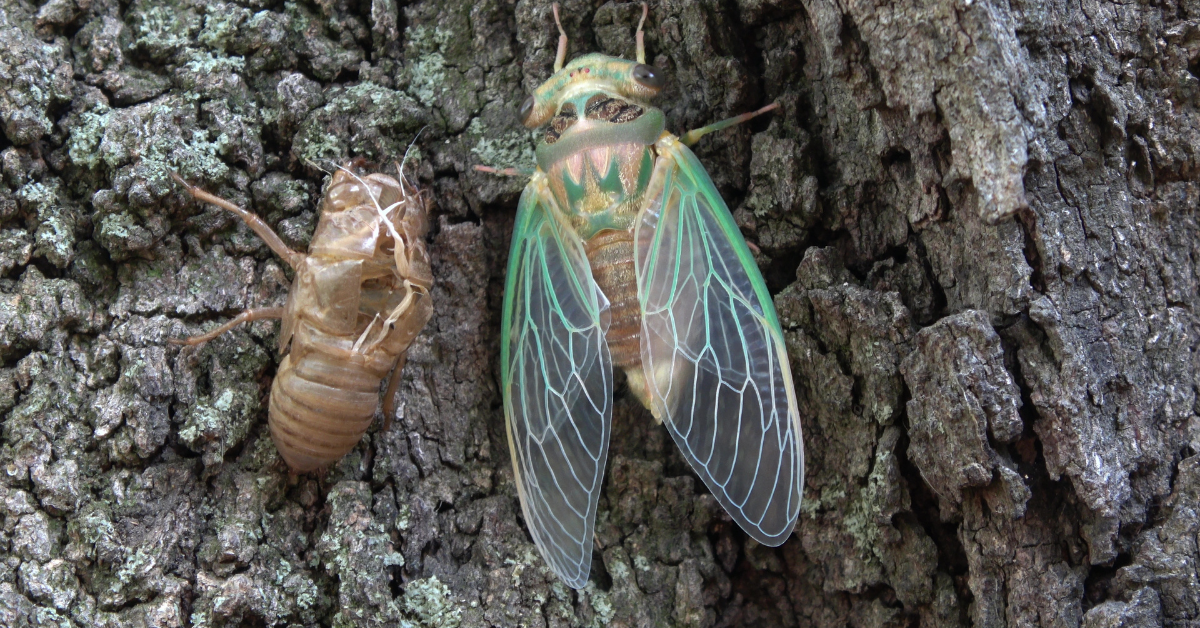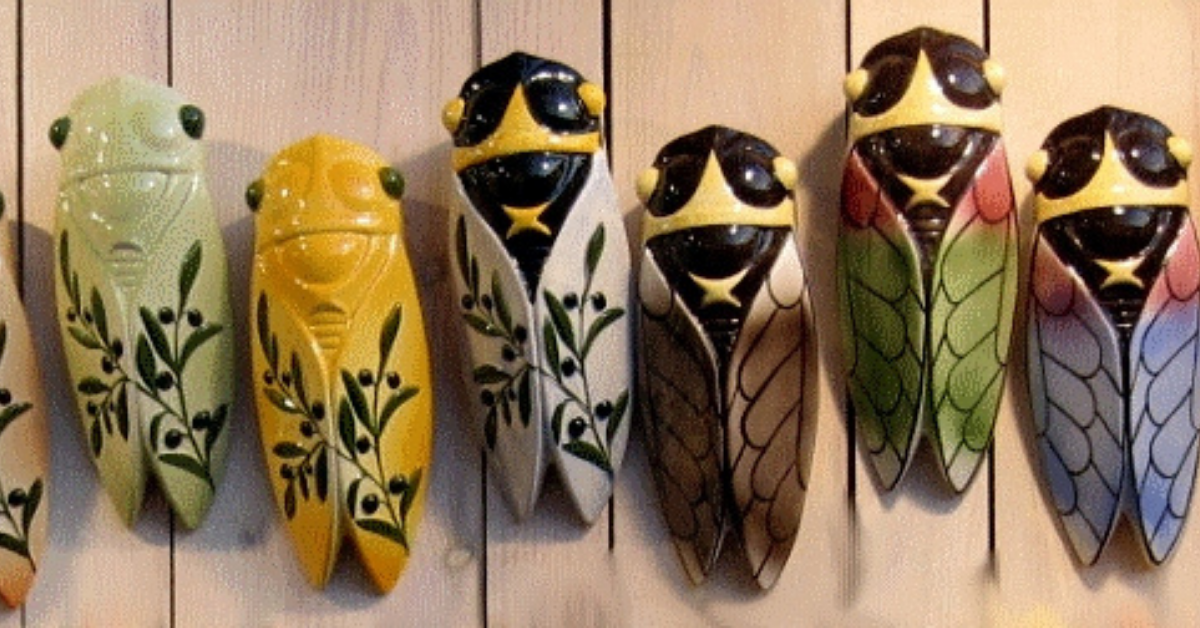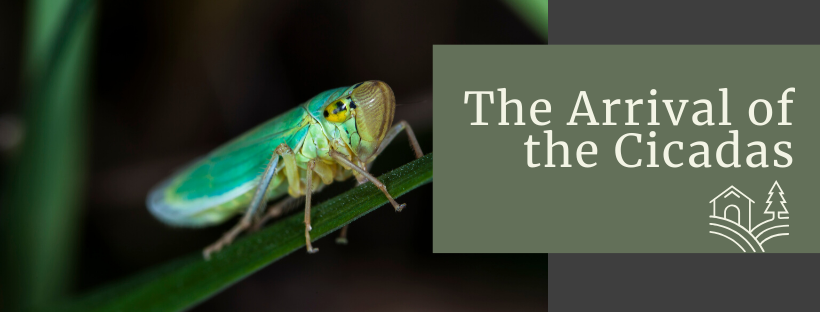The Sound of Cicadas

I love the sound of cicadas – for me it signifies the start summer. When the evenings are light until 10pm and the days are too hot to do much more than laze by the pool or head off to the beach. But that’s because I’m lucky enough to live in the sunny South of France where the sound of cicadas heralds the hot weather, the end of term and the beginning of the long school holidays.
If you ask a local when the cicadas start their song they will say on the 24th of June. And it’s true, every year, on about that date – off they go! This year we heard our first one on the 22nd.
Life Cycle

Cicadas come out when the ground temperature reaches 22°c. They live off the sap of trees like oaks and pines, which we have plenty of around La Calade so we always have their soundtrack during the summer months. They sing during the hottest times of the day, often accompanying siesta time and can reach up to 120 decibels. This sound is produced by the males when they flex their tymbals, which are drum-like organs found in their abdomens. The sound is intensified by the cicada’s mostly hollow abdomen.
This is technically loud enough to cause permanent hearing loss and is approaching the pain threshold if close to the ear but luckily they live high in the trees.
Cicadas begin life as a rice-shaped egg, which the female deposits in a groove she makes in a tree limb. Once the young cicada is ready, it crawls from the groove and falls to the ground where it will dig until it finds roots to feed on. The cicada will stay underground from 2 to 17 years depending on the species. Cicadas are active underground, tunneling and feeding, and not sleeping or hibernating as commonly thought.

After the long 2 to 17 years, cicadas emerge from the ground as nymphs. Nymphs climb the nearest available tree (or sweetcorn in our case!), and begin to shed their nymph exoskeleton. Free of their old skin, their wings will inflate with fluid and their adult skin will harden. Once their new wings and body are ready, they can begin their brief adult life, leaving their abandoned exoskeleton clinging to the bark of the tree. Adult cicadas spend their time in trees looking for a mate. Males sing, females respond, mating begins, and the cycle of life begins again.
Our own Cicadas!
This year we were lucky enough to witness this amazing spectacle! And we managed to record the last part of it – watch it here
Many cultures have myths about these noisy creatures often symbolising resurrection, rebirth and immortality

You’ll find souvenir shops all over the Mediterranean full of ceramic cicadas to hang on the wall, cicadas that sing, cicada table cloths and the like. To some the song of the cicada is a deafening drone, to others it’s hypnotic, but to me it’s pure summer – simple as that!
If you fancy coming to La Calade to experience this beautiful sound, why not have a look at our summer specials here

